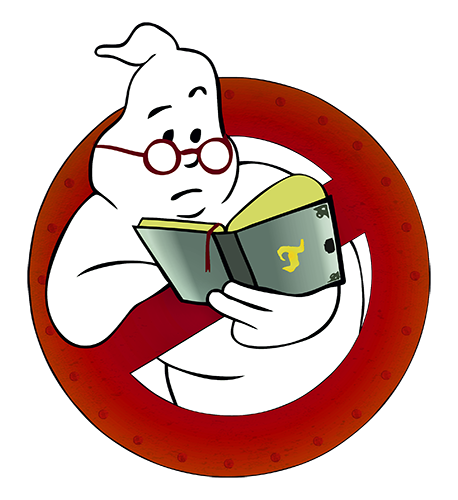Captain Lightfoot, real name Michael Martin, is a ghost from the Ghostbusters RPG's Tobin's Spirit Guide (RPG).
Tobin's Summary[]
No professional or habitual criminal ever goes to the grave feeling as though his life's work has been accomplished. There is always one more bank to be robbed, one more victim to be assaulted or swindled... always one deed that goes undone, for lack of time or opportunity-but certainly never for lack of desire. In this respect, the infamous highwayman known as Captain Lightfoot is no different from his unsavory cohorts. But there is one aspect of Captain Lightfoot that sets him apart from all the villains who have come before and since: Captain Lightfoot, whose given name was Michael Martin, was the first person in the United States sentenced to death for the crime of highway robbery. As it turns out, Martin (and the world at large) would have been better off had he not emigrated across the Atlantic in 1819 to avoid capture by authorities in Scotland. He continued to make his living by robbing travelers and always succeeded in outrunning pursuit, until the fateful day he arrived in the city of Boston. His very first robbery in this new venue went awry. Martin chose for his victim a man of great influence, who raised such a hue and cry that a posse was quickly formed. These men chased Captain Lightfoot for nearly one hundred miles before apprehending him. He was immediately brought to trial and almost as quickly found guilty. Michael Martin probably expected to serve a sentence at a work farm, and certainly to feel the sting of the lash. However, unbeknownst to him until the end of his trial, a statute had just recently enacted which made highway robbery a capital crime. The court, eager to make an example of the first criminal convicted under the new law-and an infamous one at that!-decreed that the execution should take place with all due speed. Captain Lightfoot, no longer so light of heart or of foot, did what a man faced with certain death might be expected to do: he tried to escape-and, remarkably, he actually succeeded in getting free of the jail before being recaptured. The escape was the last criminal act of Michael Martin's mortal life. Thereafter he was chained to the bars of his cell until the day appointed for the carrying out of his sentence. Reports indicate that he climbed the steps of the scaffold calmly, almost serenely... as if he knew that Captain Lightfoot was destined to live on after Michael Martin was gone. The spirit takes the same form that "the Captain" did in life: a man in early nineteenth-century garb (riding breeches, high boots,waistcoat, cloak, but no face covering) astride a small and fast gelding. He becomes visible in front of a victim, counting on the shock value of his sudden appearance to frighten the person into handing over what he demands. He accepts money but greatly prefers jewelry, even if it is of the cheapest sort. If the victim is not cowed and instead of complying, to calls for the nearest constable, Captain Lightfoot smiles broadly. His form, which until then had been an insubstantial image, fully materializes because he must be solid so that he can be captured. To keep up the pretense, he leads pursuers on a merry chase (merry for him, at least) before slowing and allowing himself be caught. Now comes the part of the game that the Captain enjoys the most. He is invariably taken to the nearest jail, there to be incarcerated until legal proceedings can be started. And in the first instant when he is left alone, unnoticed by guards, he becomes insubstantial again and walks through the walls until he is out of the place. All of the available information on this aspect of Captain Lightfoot's behavior comes from others who were imprisoned at the same time and thus witnessed this escaped. The public-not to mention the police-put no stock in their assertions, but we who believe in and research spiritual phenomena can ill afford to leave any stone unturned. The police, of course, have no better explanation. We must assume that when they can get away with it, they sidestep the question ind "solve" the problem by simply eradicating from their records any mention of the arrest. After all, if there was no criminal to begin with, then there can have been no escape. If any law enforcement official sees fit to take issue with this bit of reasoning on my part, I would defy him to produce evidence from his precinct or any other that a highwayman was in fact apprehended and subsequently escaped from a locked cell. For reasons that should be obvious, I would be most pleased to read the record of such an incident, and would happily and fervently apologize to the officer to whom my above remarks were offensive.
